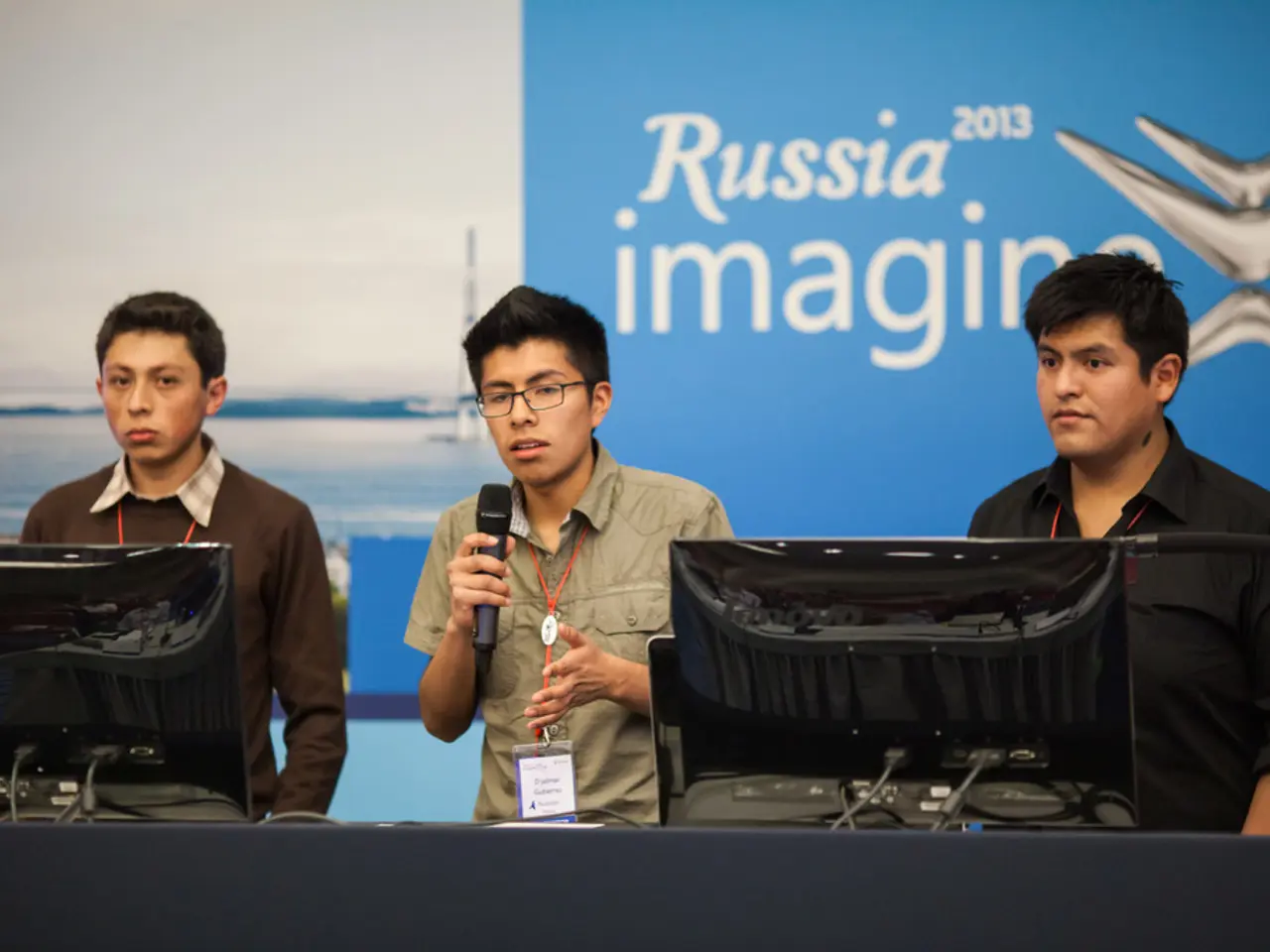Lavrov, Russia's Foreign Minister, holds back from predicting the result of the forthcoming Putin-Trump meeting in Alaska.
The U.S.-Russia summit in Alaska on August 15, 2025, marked a significant milestone in the ongoing efforts to resolve the conflict in Ukraine. However, the path to peace remains uncertain as Russia continues to avoid meaningful negotiations with Ukraine.
The summit, which began around 11 a.m. local time (10 p.m. Moscow time), brought together U.S. President Donald Trump and Russian President Vladimir Putin. Putin described the meeting as "very good and meaningful," expressing hope that it marks the start of a "full-scale restoration" of U.S.-Russia relations. The Trump administration, however, insists that meaningful peace in Ukraine is a prerequisite for fully restoring these relations.
Russia's stance on Ukraine has been firm. The country is not actively engaging in peace talks, with Putin prioritizing his war aims in Ukraine over negotiations. Russia has also rejected European proposals for deploying troops in Ukraine as part of a peace settlement, viewing it as "foreign intervention."
Ukraine, on the other hand, has demanded security guarantees before any meeting with Putin. Ukrainian President Volodymyr Zelensky insists that any meeting must be preceded by security guarantees to prevent further Russian aggression.
Despite hopes for peace, both Ukraine and Russia are preparing for continued fighting. Ukraine is testing new weapons, while Russia is maintaining offensive operations. The conflict continues with significant violence, including recent drone attacks and ongoing military operations by both sides.
The U.S. has set a time frame for assessing peace prospects, with President Trump previously setting deadlines for Russia to end the war or face sanctions. German Chancellor Friedrich Merz considers the summit an opportunity for Russia to end hostilities in Ukraine. Germany would stand alongside its allies to establish a path to peace that protects the fundamental security interests of Europe and Ukraine.
Significant progress has been made during visits by U.S. presidential envoy Steve Witkoff. The summit is aimed at finding common ground to end the war in Ukraine, which has continued since February 2022.
Moscow has remained cautious about the potential outcome of the summit, refusing to speculate. Russian Foreign Minister Sergey Lavrov arrived in Anchorage, Alaska for the summit, wearing a sweatshirt with "USSR" written on it. Lavrov responded to Trump's earlier assessment that there was a 25% chance the negotiations could fail, saying they never make predictions and will present their clear, understandable position.
In a positive note, Ukrainian Presidential aide Yuri Ushakov is expected to accompany President Vladimir Putin during the summit, suggesting a potential dialogue between the two leaders. German Chancellor Friedrich Merz expects Putin to take Trump's dialogue offer seriously and begin negotiations with Ukraine unconditionally after the meeting in Alaska.
As the summit unfolds, the international community awaits a potential breakthrough in the long-standing conflict in Ukraine. The stakes are high, and the world watches with bated breath.
- As the U.S.-Russia summit in Anchorage, Alaska transpired, Turkish President Recep Tayyip Erdoğan expressed his concern over the ongoing war-and-conflicts in Ukraine, urging both Russia and Ukraine to prioritize policy-and-legislation and politics that lead to peace.
- Meanwhile, in the Turkish capital of Ankara, Turkish politicians were debating whether Turkey should take a more active role in the general-news surrounding Ukraine, possibly issuing some form of mediation to help end the conflict.
- Despite Turkey's interest, the Ankara government remains cautious about involving itself too deeply in the Ukraine conflict, fearing potential repercussions from both Russia and Ukraine in their war-and-conflicts.








